US must support Africa’s struggle for fair polls
by Jeffrey Herbst and Greg Mills,
2016-03-10 05:57:50.0
IN JULY 2009, near the beginning of his first term, US President Barack Obama gave a rousing defence of democracy and good governance to the parliament of Ghana, arguing that "Africa doesn’t need strongmen, it needs strong institutions".
Sadly, in the past few years democracy and freedom in Africa have been in decline, in part because the US and Europe lack the will to protest against the actions of authoritarian leaders.
If current trends are not arrested, there will be more trouble in future. Nowhere is the choice between authoritarians and institutions clearer than in the recent Ugandan elections. Yoweri Museveni came to power in 1986 and did much to reform the economy and heal a war-torn country. However, over time, he has led an increasingly authoritarian and corrupt government, and now, he has resorted to rigging elections.
In last month’s poll, the main opposition leader, Kizza Besigye, was detained by the police repeatedly, the state media were overwhelmingly biased towards the ruling party, journalists faced severe barriers to covering the election, and many polling stations were severely delayed in opening. Overall, the Commonwealth Observer Group said: "Elections fell short of meeting some key democratic benchmarks."
US Secretary of State John Kerry did call Museveni to protest, but his complaints were brushed off by a government that sees little downside to defying the Obama administration. The Ugandans provide critical troops to a number of peacekeeping operations, notably in Somalia, and believe they are essential to operations for which Americans and other westerners do not want to provide troops. Indeed, senior US officials confirmed to us that no change in US assistance to Uganda should be expected, despite the strongman’s success in suppressing democratic institutions, contrary to Obama’s earlier, hopeful message.
What conclusions are to be drawn by others who want democracy in Africa? A senior member of the Commonwealth mission told us African democrats should recognise that they are on their own; no one will come to their aid. Indeed, in Central Africa, we are seeing the breakdown of democratic institutions. Rwandan President Paul Kagame engineered a referendum to extend his ability to stay in power that he won with 98% of the vote. Burundi is at the precipice of potentially catastrophic violence after President Pierre Nkurunziza sought a third term successfully that many consider illegal. And in the Democratic Republic of the Congo, President Joseph Kabila is desperately trying to get around constitutional term limits.
We are particularly concerned about the Zambian elections to be held in August. Zambians watched the Ugandan election closely to see if the international community would pressure Museveni to conduct a free and fair election. When it became clear that the international community would do nothing in light of the machinations of the long-time leader, the Zambian opposition drew the inevitable conclusion.
As opposition leader Hakainde Hichilema put it to us: "We can only help ourselves." There is a fear that opposition parties will themselves abandon democracy when they realise that violence may be their only option to protest against a stolen election. This is how once stable countries fall apart.
In fiscal 2014, the US alone gave Uganda $293m. Some will argue that aid should not be sacrificed because of democratic concerns. However, Uganda has a history of violence, and there is little doubt that Museveni has made the country less stable. While his peacekeepers offer hope of stability in Somalia, his attitude threatens violence back home. If the country destabilises, aid and foreign investment will disappear.
It is, therefore, long past time for the US to live up to Obama’s pledge of seven years ago and stand up for democratic institutions across Africa.
• Herbst is president and CE of the Newseum. Mills is director of the Brenthurst Foundation in SA
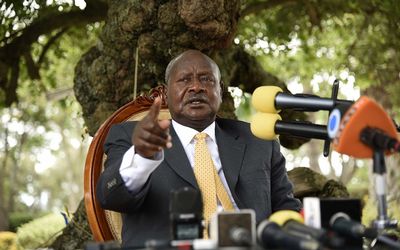
Newly re-elected president Yoweri Museveni, in power for three decades, gestures as he speaks during a press conference at his country home in Rwakitura, about 275 kilometres west of the Capital Kampala on February 21, 2016. Picture: AFP/ISAAC KASAMANI
IN JULY 2009, near the beginning of his first term, US President Barack Obama gave a rousing defence of democracy and good governance to the parliament of Ghana, arguing that "Africa doesn’t need strongmen, it needs strong institutions".
Sadly, in the past few years democracy and freedom in Africa have been in decline, in part because the US and Europe lack the will to protest against the actions of authoritarian leaders.
If current trends are not arrested, there will be more trouble in future. Nowhere is the choice between authoritarians and institutions clearer than in the recent Ugandan elections. Yoweri Museveni came to power in 1986 and did much to reform the economy and heal a war-torn country. However, over time, he has led an increasingly authoritarian and corrupt government, and now, he has resorted to rigging elections.
In last month’s poll, the main opposition leader, Kizza Besigye, was detained by the police repeatedly, the state media were overwhelmingly biased towards the ruling party, journalists faced severe barriers to covering the election, and many polling stations were severely delayed in opening. Overall, the Commonwealth Observer Group said: "Elections fell short of meeting some key democratic benchmarks."
US Secretary of State John Kerry did call Museveni to protest, but his complaints were brushed off by a government that sees little downside to defying the Obama administration. The Ugandans provide critical troops to a number of peacekeeping operations, notably in Somalia, and believe they are essential to operations for which Americans and other westerners do not want to provide troops. Indeed, senior US officials confirmed to us that no change in US assistance to Uganda should be expected, despite the strongman’s success in suppressing democratic institutions, contrary to Obama’s earlier, hopeful message.
What conclusions are to be drawn by others who want democracy in Africa? A senior member of the Commonwealth mission told us African democrats should recognise that they are on their own; no one will come to their aid. Indeed, in Central Africa, we are seeing the breakdown of democratic institutions. Rwandan President Paul Kagame engineered a referendum to extend his ability to stay in power that he won with 98% of the vote. Burundi is at the precipice of potentially catastrophic violence after President Pierre Nkurunziza sought a third term successfully that many consider illegal. And in the Democratic Republic of the Congo, President Joseph Kabila is desperately trying to get around constitutional term limits.
We are particularly concerned about the Zambian elections to be held in August. Zambians watched the Ugandan election closely to see if the international community would pressure Museveni to conduct a free and fair election. When it became clear that the international community would do nothing in light of the machinations of the long-time leader, the Zambian opposition drew the inevitable conclusion.
As opposition leader Hakainde Hichilema put it to us: "We can only help ourselves." There is a fear that opposition parties will themselves abandon democracy when they realise that violence may be their only option to protest against a stolen election. This is how once stable countries fall apart.
In fiscal 2014, the US alone gave Uganda $293m. Some will argue that aid should not be sacrificed because of democratic concerns. However, Uganda has a history of violence, and there is little doubt that Museveni has made the country less stable. While his peacekeepers offer hope of stability in Somalia, his attitude threatens violence back home. If the country destabilises, aid and foreign investment will disappear.
It is, therefore, long past time for the US to live up to Obama’s pledge of seven years ago and stand up for democratic institutions across Africa.
• Herbst is president and CE of the Newseum. Mills is director of the Brenthurst Foundation in SA


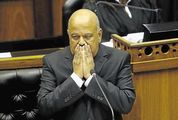
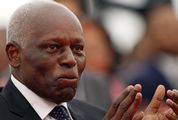
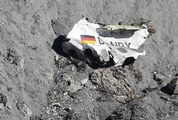
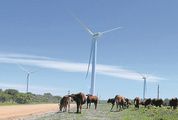


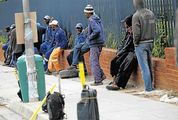
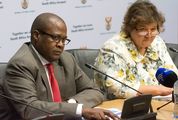
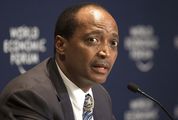













Change: 0.40%
Change: 0.47%
Change: -0.49%
Change: 0.53%
Change: 1.03%
Data supplied by Profile Data
Change: 1.71%
Change: 1.28%
Change: 0.40%
Change: 0.00%
Change: 1.64%
Data supplied by Profile Data
Change: -1.27%
Change: 0.00%
Change: 0.05%
Change: -0.08%
Change: 0.35%
Data supplied by Profile Data
Change: -0.02%
Change: 0.21%
Change: -0.06%
Change: 0.53%
Change: 0.70%
Data supplied by Profile Data